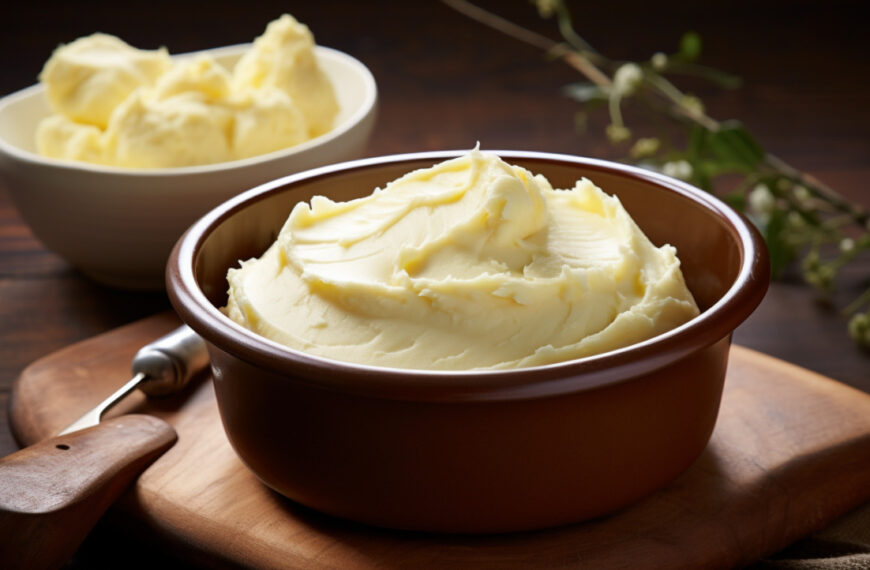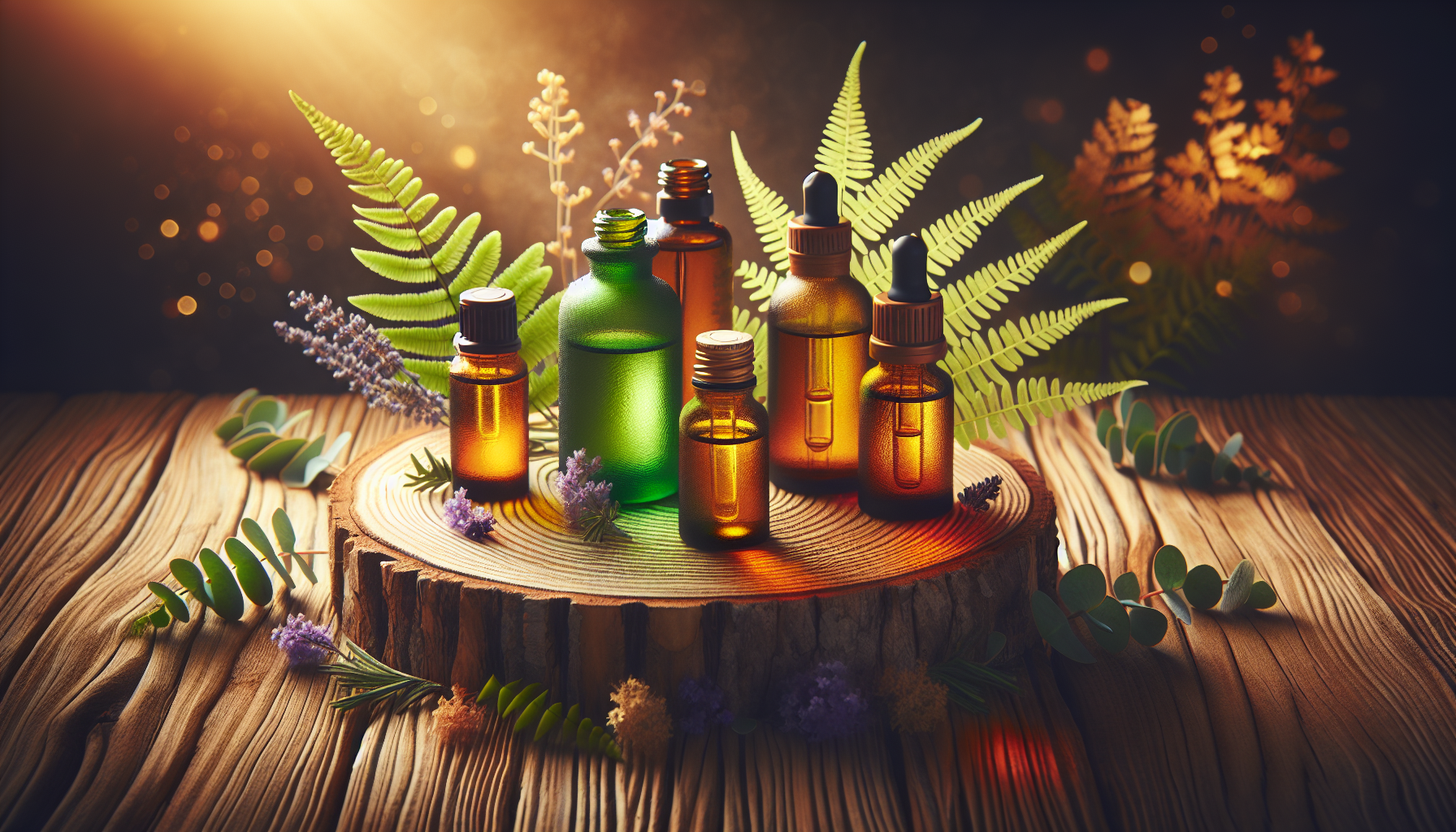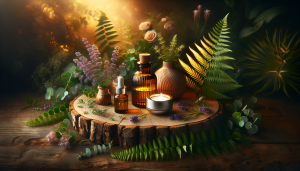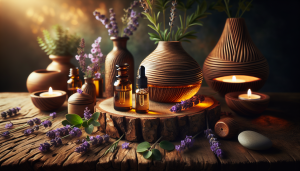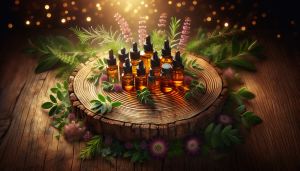Night after night, I’ve watched countless clients transform their sleep with the gentle power of essential oils. There’s something magical about how these concentrated plant essences can guide our bodies from wakefulness to deep, restorative sleep. The science behind this ancient practice has fascinated me throughout my decade of working with these aromatic compounds.
Sniff, Relax, Sleep: The Essential Oils Sleep Solution
Essential oils aren’t just pleasant scents—they’re powerful natural sleep aids that work through specific neurological pathways. When I first discovered how these botanical extracts affect our brains, I was amazed at the measurable changes they create.
Research has revealed that lavender essential oil actually reduces alpha brain waves (associated with alertness) while increasing delta waves (linked to deep sleep). This isn’t just a perceived effect—it’s a measurable change in sleep architecture that explains why aromatherapy for sleep works so effectively.

The power of essential oils extends beyond just making your bedroom smell nice. Clinical studies have shown that specific blends containing lavender, bergamot, and ylang ylang significantly improve sleep quality scores compared to placebos. These relaxation essential oils work synergistically, creating effects that surpass what any single oil might accomplish.
What’s particularly fascinating is how these benefits extend across diverse populations. From healthy adults to post-surgery patients, the sleep-enhancing effects of essential oils have been consistently documented. This universal response speaks to how deeply these natural compounds interact with our nervous system.
Top Essential Oils for Restful Sleep
After years of experimentation, I’ve found certain oils consistently outperform others for promoting deep, restorative sleep. Here are my top recommendations:
Lavender: The Gold Standard
Lavender remains the most thoroughly researched and clinically supported essential oil for sleep. Its main components, linalool and linalyl acetate, have been shown to calm the nervous system and reduce sleep fragmentation. I’ve seen even the most stubborn insomnia cases respond to high-quality lavender oil used consistently.
Chamomile: Nature’s Tranquilizer
Roman and German chamomile oils contain apigenin, which binds to the same brain receptors as some anti-anxiety medications. The sweet, apple-like scent creates an immediate sense of calm that helps quiet racing thoughts before bed.

Valerian Root: The Deep Sleep Inducer
While its aroma is less pleasant than other oils, valerian’s effectiveness for promoting deep sleep makes it worth considering. I often recommend it as part of sleep blends where other oils can mask its earthy scent while benefiting from its potent sedative properties.
Bergamot: The Mood Balancer
Unlike most citrus oils that energize, bergamot uniquely calms the nervous system while lifting mood. This makes it perfect for those whose sleep troubles stem from anxiety or low mood. Research has confirmed its effectiveness in reducing stress parameters that often interfere with quality sleep.
Vetiver: The Grounding Root
With its rich, earthy aroma, vetiver excels at quieting an overactive mind. I’ve found it particularly helpful for those who struggle with mental chatter that prevents them from falling asleep.
How to Use Essential Oils for Better ZZZs
The method of application can significantly impact how effectively essential oils work as natural sleep aids. Here are my favorite approaches:
Diffusion: The Ambient Approach
Using a quality diffuser remains the most popular and effective method for sleep support. I recommend:
- Starting your diffuser 30-45 minutes before bedtime
- Using 5-7 drops total of your chosen sleep blend
- Setting diffusers with timers to run for 30-60 minutes (continuous overnight diffusion isn’t necessary)
Topical Application: The Direct Method
Creating a diluted sleep blend can be incredibly effective when applied to pulse points, the back of the neck, or the soles of feet. My go-to formula:

- 10 ml carrier oil (jojoba or sweet almond work beautifully)
- 3 drops lavender
- 2 drops chamomile
- 1 drop vetiver or valerian
Inhalation: The Simplest Approach
Sometimes the simplest methods are most effective. Placing a drop of lavender on your pillow or inhaling directly from the bottle can trigger an immediate relaxation response that helps transition to sleep.
Bath Time Ritual: The Immersive Experience
Adding 3-5 drops of sleep-promoting oils mixed with a tablespoon of carrier oil to a warm bath creates a deeply relaxing pre-sleep ritual that prepares both body and mind for rest.
Safety and Precautions
While essential oils offer remarkable benefits as natural sleep aids, respecting their potency is crucial for safe use:
Dilution Matters
Always dilute essential oils in a carrier oil before applying to skin. Even the gentlest oils can cause irritation when used at full strength.
Special Populations
Certain groups need additional caution:

- Pregnant women should avoid certain oils entirely (including clary sage and rosemary)
- Children require significantly lower dilutions (0.25-0.5%)
- Those with asthma or respiratory conditions should start with minimal diffusion
Quality Considerations
The effectiveness of aromatherapy for sleep depends greatly on oil quality. Look for:
- Oils labeled as 100% pure, therapeutic grade
- Companies that provide GC/MS testing results
- Proper botanical names on labels
Medication Interactions
Some essential oils can interact with sleep medications or other pharmaceuticals. If you’re taking prescription medications, consult with a healthcare provider before incorporating essential oils into your sleep routine.
Enhancing Your Sleep Ritual
The most powerful results come when essential oils are part of a comprehensive sleep hygiene practice:
Creating a Sleep-Promoting Environment
Pair your aromatherapy practice with:
- Dimming lights 1-2 hours before bed
- Maintaining cool bedroom temperatures (65-68°F/18-20°C)
- Eliminating electronic screens or using blue light filters
Synergistic Sleep Blends
Some of my favorite diffuser recipes for calming anxiety before bed include:

Deep Tranquility Blend:
- 3 drops lavender
- 2 drops bergamot
- 1 drop vetiver
Sweet Dreams Blend:
- 3 drops chamomile
- 2 drops lavender
- 1 drop ylang ylang
Midnight Calm Blend:
- 3 drops valerian
- 3 drops lavender
- 1 drop sweet orange
Consistency Is Key
The neurological benefits of essential oils for sleep compound with regular use. Your brain begins to associate these scents with relaxation, creating a conditioned response that makes falling asleep progressively easier.
Drift Off with Fragrant Dreams: Final Thoughts
Essential oils offer a gentle yet powerful approach to improving sleep quality naturally. The research continues to validate what traditional practices have known for centuries—that these concentrated plant essences can guide our nervous systems from alertness to deep, restorative rest.
Whether you’re dealing with occasional sleep disruption or more persistent insomnia, incorporating aromatherapy for sleep into your nightly routine provides a natural alternative to conventional sleep aids. The beauty of this approach lies in its personalization—with experimentation, you’ll discover which oils and application methods work best for your unique biochemistry.
Sweet dreams await in those tiny bottles of botanical essence. The path to better sleep might be just a few drops away.





